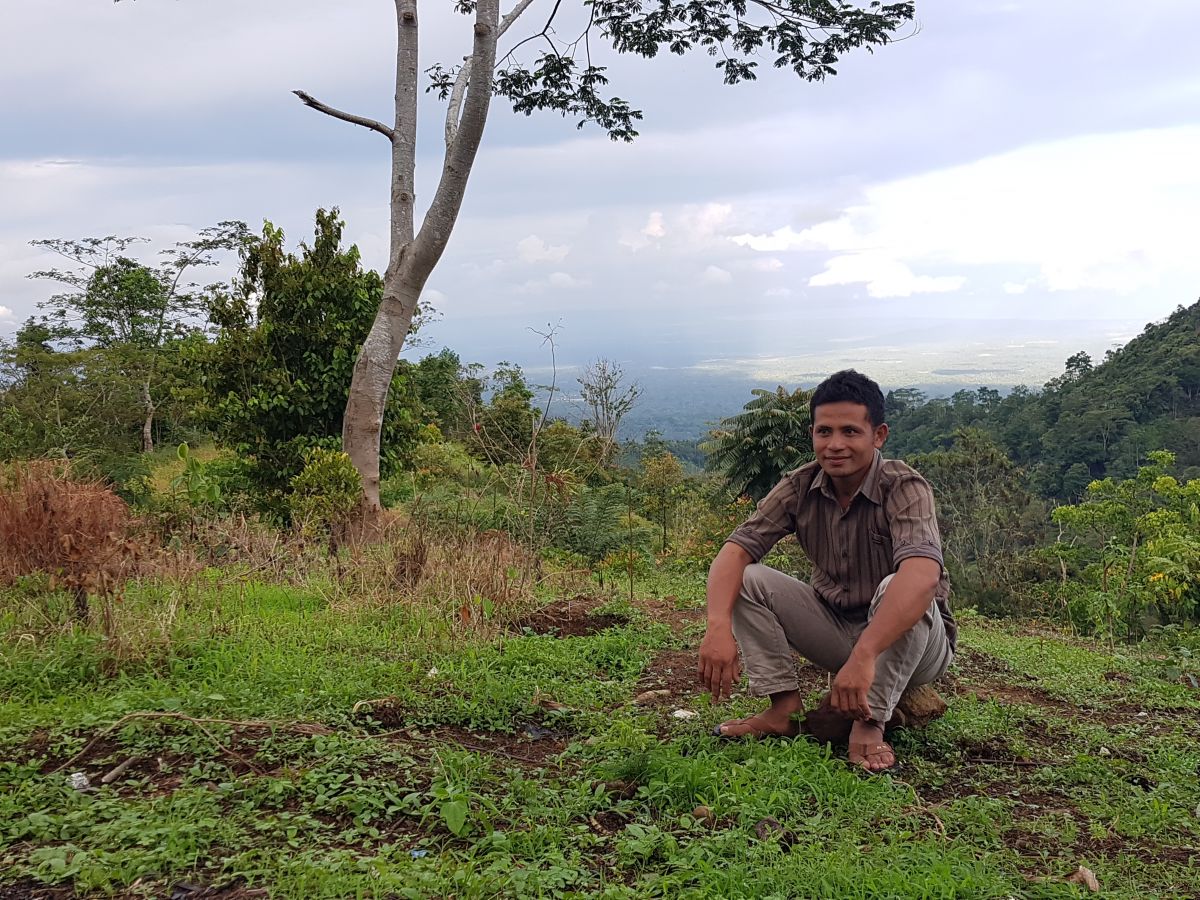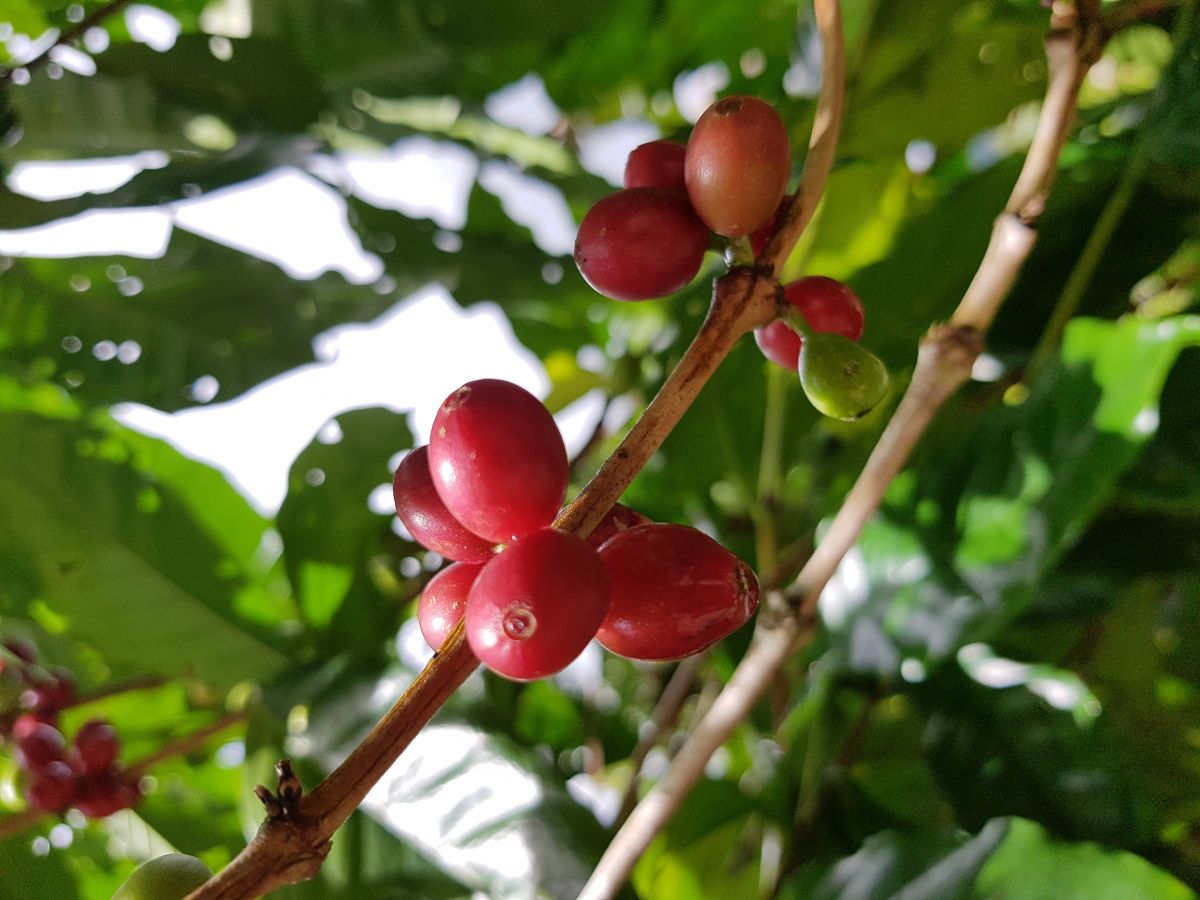Why Coffee: Brewing Local Entrepreneurs in South Sulawesi

The intensity of this smell has penetrated Ramli's life since 1986, when his father first planted coffee on his land in Bantaeng, Indonesia. “Up to now, our family who lives nearby continues to plant coffee,” Ramli recounts in a video produced by The Center for People and Forests (RECOFTC) about the Akar Tani Cooperative, the focus of our upcoming Give2Asia fundraising event.
But why coffee? M. Irzad Syafar, the leader of Akar Tani Cooperative, has a notable response: “We can all live through coffee.”
Coffee has a rich history in Indonesia. Affectionately called “Java” by many people in the Western World, coffee cultivation began in the late 1600s and early 1700s, playing an important role in the country’s economic growth. The nickname, however, unintentionally comes from the name of a major island in the Indonesian archipelago: Java.

Indonesia is geographically and climatologically well-suited for coffee plantations as it is near the equator with interior mountainous regions on its main islands. This creates well-suited microclimates for the growth and production of coffee. In 2017 alone, Indonesia produced an estimated 660,000 metric tons of coffee in 2017. Of this total, it is estimated that 154,800 tons were slated for domestic consumption in the 2013/2014 financial year. In general, Indonesia's Arabica coffee varieties have low acidity and strong bodies, which make them ideal for blending with higher-acidity coffees from Central America and East Africa. These qualities mean that Indonesian coffee is in high demand. Recently, both Starbucks Anniversary Blend and Nestle (to name a few international brands) have featured Indonesian coffee for both domestic and international markets with catchy names to attract consumers.
Bantaeng and Bulukumba Districts of South Sulawesi is a localized example of this larger, national trend. Coffee plays an important role in the livelihoods of Bantaeng and Bulukumba farmers. Coffee farms are managed with agroforestry systems within the forest and the communities’ gardens. To increase their income, farmers are working to improve the quality of their coffee products so they can access the market at a higher price. Additionally, local farmers are forming cooperatives to shield themselves from predatory traders. As part of capacity building for farmers, RECOFTC recently organized a study tour to Klasik Beans Cooperatives so farmers from Bantaeng and Bulukumba could have an opportunity to learn about coffee farming and good business practices for cooperatives in the hopes that their cooperative business may continue to grow.
And now, after the tour, Akar Tani, which was formed in 2016, is following suit.
 More importantly, this area provides a unique opportunity to solidify land tenure through the Government’s new policy and give the land “back to the people.” Coffee, whether it comes from a home garden or an agroforestry system, is dependent upon the access to land, the ability to produce quality beans and store and process them properly. With technical information in place, the land becomes imperative. Now with your financial support, it is possible for these communities to apply for more land and utilize the knowledge learned from Klasik Beans.
More importantly, this area provides a unique opportunity to solidify land tenure through the Government’s new policy and give the land “back to the people.” Coffee, whether it comes from a home garden or an agroforestry system, is dependent upon the access to land, the ability to produce quality beans and store and process them properly. With technical information in place, the land becomes imperative. Now with your financial support, it is possible for these communities to apply for more land and utilize the knowledge learned from Klasik Beans.
The smell of coffee drifts in and out of everyday life for us, but for those in Akar Tani, coffee is omnipresent. Help the Akar Tani Cooperative retain their livelihoods by visiting our Give2Asia page and providing a small donation in the name of Java and sustainability.

